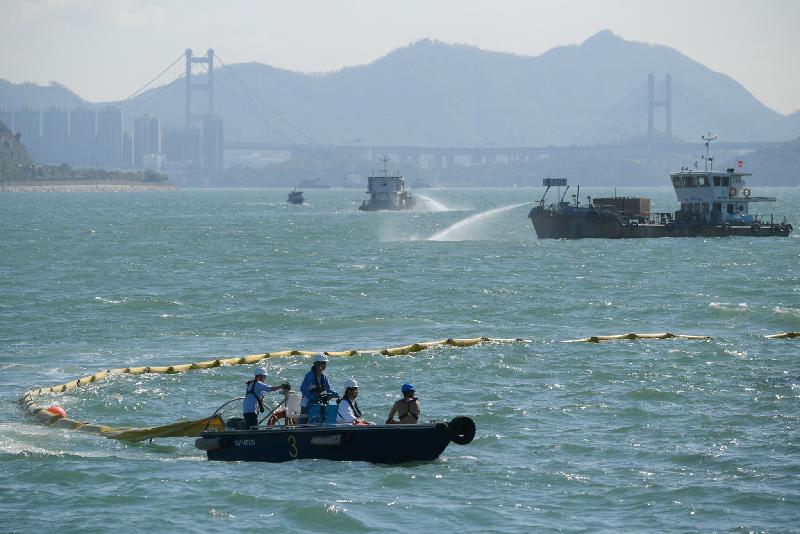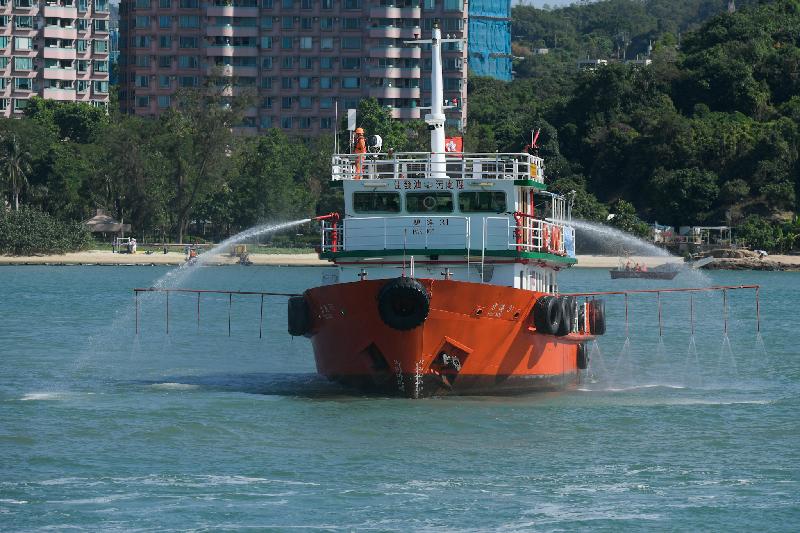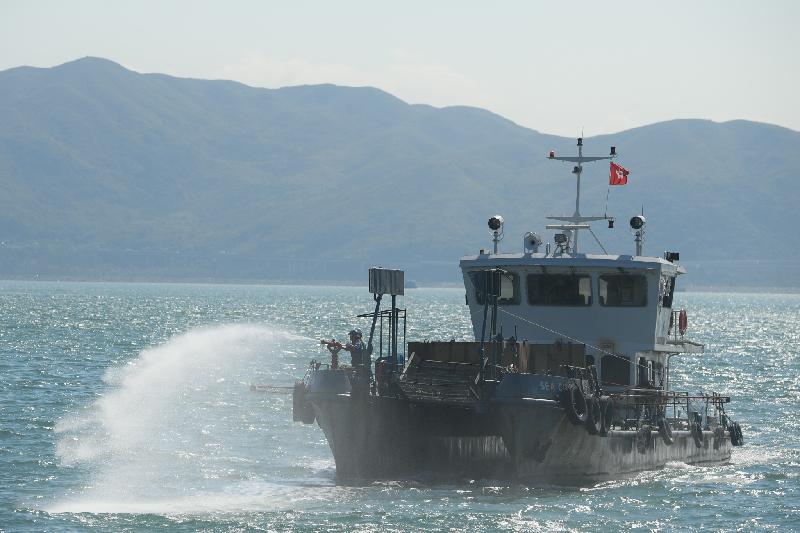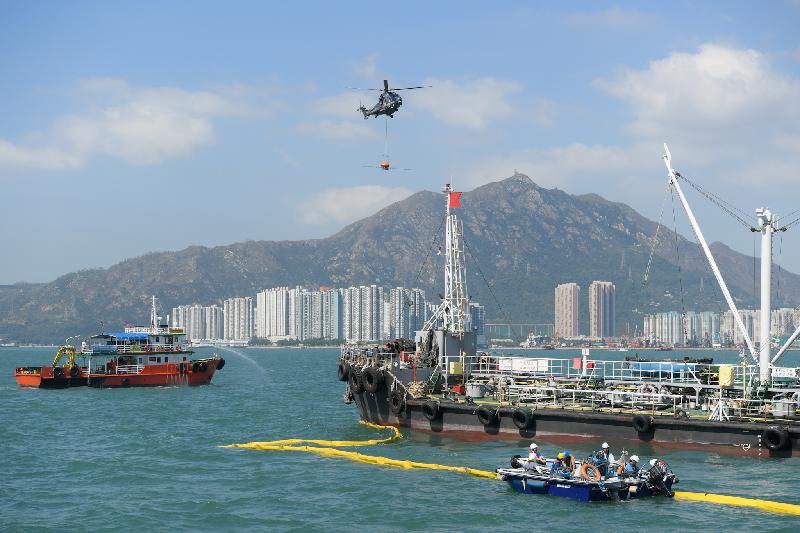Oilex and HNS Exercise test marine pollution responses (with photos)
********************************************************************
In the test scenario, an oil tanker collided with a container vessel, leading to fuel oil leaking from the tanker and five containers loaded with acetone solution falling into the sea. The five containers drifted in the nearby waters and leaked acetone solution. In the joint exercises, response groups were tasked to contain and clean up the spilled oil and chemicals to prevent damage to the environment and nearby facilities.
In the exercises, various participating parties took a series of simulated response actions. On the tanker anchored to the south of Pearl Island, a salvage team transferred fuel oil from the damaged tank and patched up the leak so as to stop further oil leakage at source. At the same time, an oil combat team deployed floating barrier booms to encircle the tanker and set up barrier booms near the tanker to prevent the spill from spreading. The exercise also simulated the spraying of oil dispersant and sea water from pollution control vessels and a Government Flying Service (GFS) helicopter onto oil on the sea surface, as well as the use of oil skimmers and other equipment. Simultaneously, a shoreline cleaning team conducted a shoreline oil clean-up drill at a beach to the east of Pearl Island.
In combating the simulated HNS spill, the response groups lifted the damaged containers out from the sea, and sprayed seawater on the sea surface to disperse the plume caused by the acetone solution and expedite the dilution of acetone solution.
The joint response exercises were co-ordinated by the Marine Department (MD) and the Environmental Protection Department. The participating government departments and organisations included the Fire Services Department, the GFS, the Hong Kong Police Force, the Government Laboratory and the Civil Aid Service, as well as several oil companies and Hong Kong Response Limited.
The response exercises not only provided hands-on experience for response members, but also helped relevant parties to adopt an effective emergency response strategy for preventing pollution according to the properties and extent of the spilled substances.
Ends/Tuesday, November 6, 2018
Issued at HKT 16:40
Issued at HKT 16:40
NNNN








